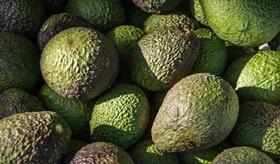
Data released by Auckland airport has indicated airfreight of New Zealand avocados for the month of August 2020 dropped 60 per cent compared to the same period last year.
The two major markets impacted by the lack of airfreight capacity were Korea and Thailand. New Zealand avocado exports to Korea were down 100 per cent in August 2020, compared to August 2019, while Thailand dropped 31 per cent during the same period.
Auckland Airport general manager aeronautical commercial, Scott Tasker, said the reduced volume reflected the crunch in capacity to those markets.
“Cargo capacity between Auckland and Korea was down 44 per cent and 89 per cent through to Thailand. It looks like some of that has shifted across to sea freight, with a 15 per cent increase in avocados leaving Ports of Auckland and Ports of Tauranga,” Tasker said in an interview with Stuff NZ.
Spokesman for grower organisation Avoco, Steve Trickett, said airfreight volumes were down largely because of the cost, which was up to four times higher than last season.
Avocados were competing with higher-paying cargo such as chilled seafood as airlines were “chasing revenue to survive”, he said.
New Zealand Avocado chief executive Jen Scoular noted that 90 per cent of avocados were shipped by sea, but airfreight provided flexibility when demand ramped up or weather conditions slowed harvest.
“Airfreight is severely limited and very expensive in this Covid-19 environment,” said Scoular.
Australia remains New Zealand’s largest export market for avocados, and a long dry summer in Australia has reduced domestic avocado production. According to a report published by Stuff NZ, New Zealand exporters will be directing avocados across the Tasman, given the increased cost in airfreight.
Trickett noted sea freight rates were mostly the same as pre-Covid, and securing space was manageable but schedules were unreliable and could delay delivery and compromise fruit quality.
Auckland airport is forecasting international cargo capacity between September and November 2020 to be down 32 per cent and 42 per cent respectively from last year.
Tasker also said capacity is expected to drop again in December as scheduled flights were likely to be cancelled if the lack of passenger demand due to border closures continued.
“Anecdotally we know continued low passenger numbers combined with a demand imbalance can make it commercially difficult for airlines to fly certain routes,” said Tasker.
Enjoyed this free article from Asiafruit Magazine and its team of editors? Don’t miss out on even more in-depth analysis, plus all the latest news from the fresh produce business.Subscribe now to Asiafruit Magazine.






No comments yet